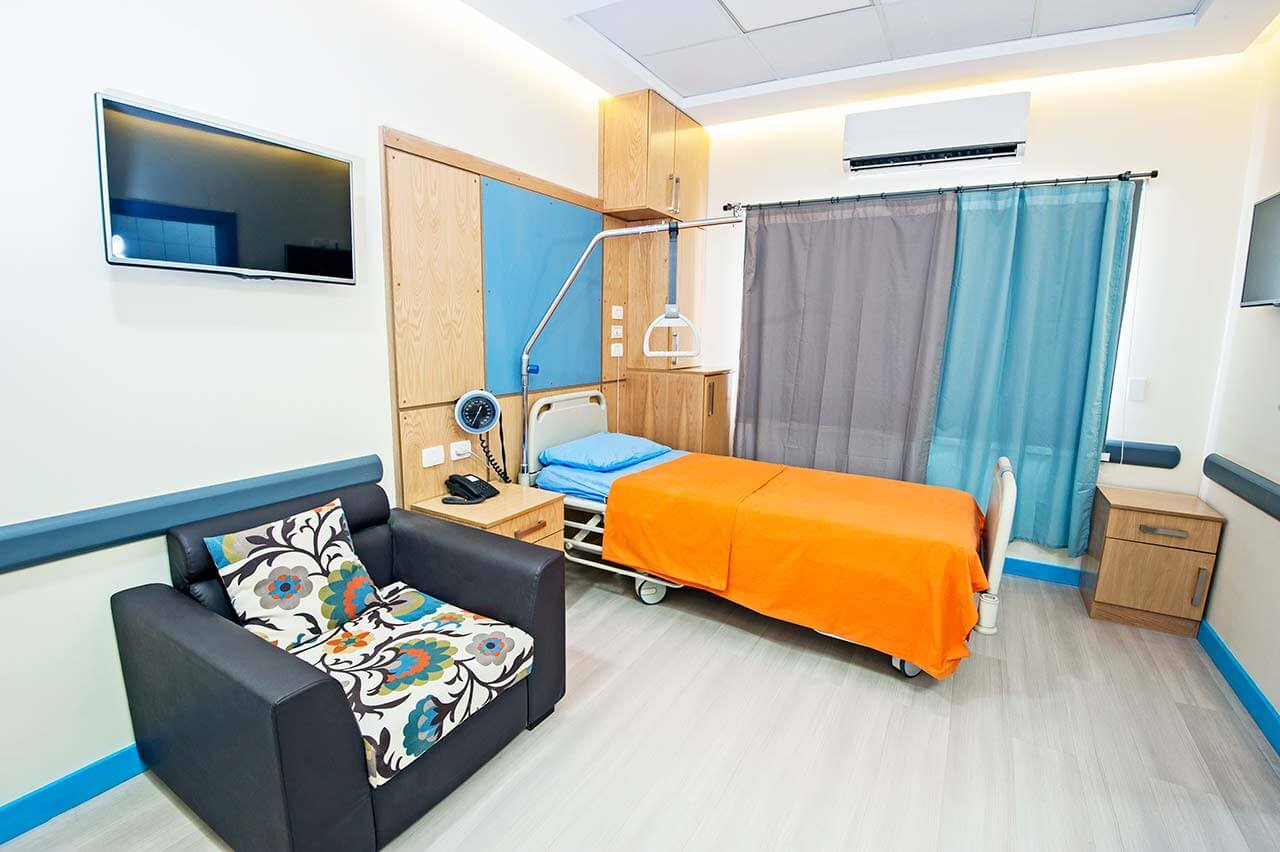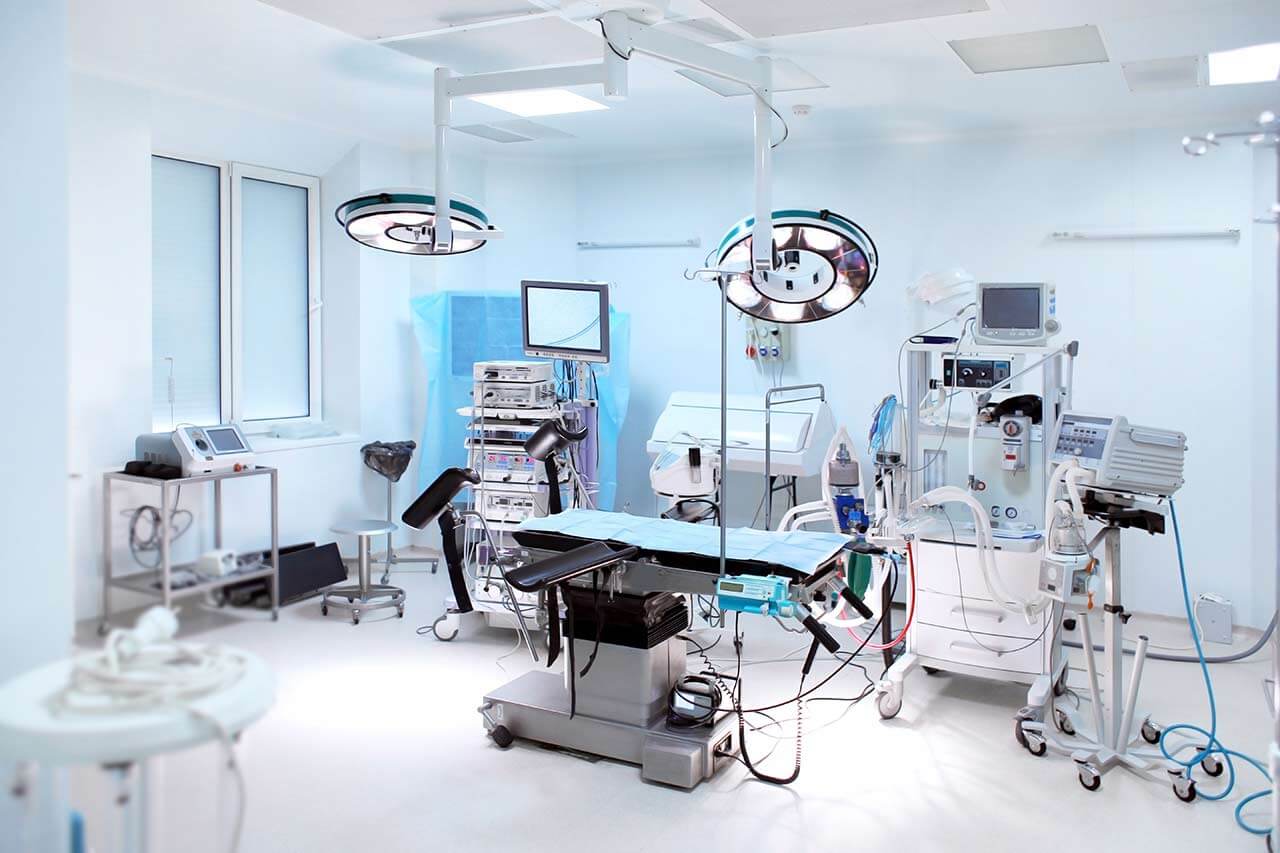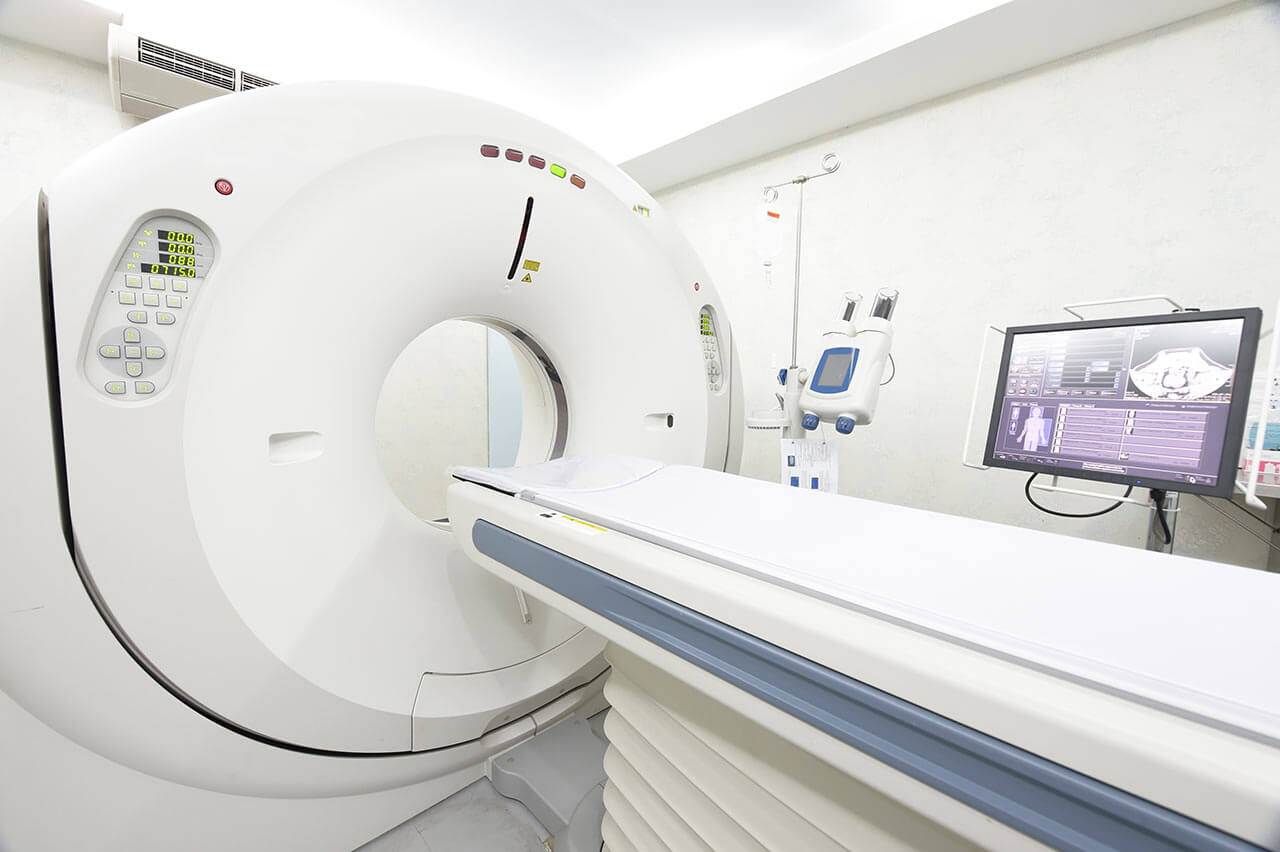
About the Department of Radiation Therapy, Radiation Oncology and Proton Therapy at University Hospital Carl Gustav Carus Dresden
The Department of Radiation Therapy, Radiation Oncology and Proton Therapy at the University Hospital Carl Gustav Carus Dresden offers the full range of modern radiation therapy at the highest medical and technological level. Innovative proton therapy is also within the competence of the medical facility. As the largest medical facility of this kind in Eastern Saxony, the department annually admits about 2,300 cancer patients, 550 of whom are treated on an inpatient basis. In total, the department has about 110 employees, including 26 doctors, 14 physicists, 22 radiological assistants, 22 nurses and 28 employees of various profiles (in radiation biology research laboratories and other sections). The department's doctors cooperate closely with oncologists, chemotherapists and other specialists in related fields, since cancer patients usually require comprehensive treatment that combines several methods. In most cases, patients undergo radiation therapy on an outpatient basis, which eliminates the need for hospitalization. The main value of the department's medical team is the patient's health, so doctors always strive to provide qualified medical care that meets the individual needs of the patient.
The department is headed by Prof. Dr. med. Mechthild Krause. The doctor is one of the leading European experts in proton and photon therapy. She has vast clinical experience and saved thousands of lives of cancer patients.
Сombined treatment with radiation therapy and chemotherapy is carried out on an inpatient basis. Prostate and breast tumors, as well as brain tumors are most often treated on an outpatient basis. The outpatient treatment partially takes place in the Section of Radiation Therapy located at the Medical Care Center (MVZ). State-of-the-art medical equipment and the introduction of the very latest medical advances ensure the use of optimal treatment programs and radiation technologies. The specialists involved in the treatment process set themselves the goal of choosing an individually adapted treatment for each patient, taking into account all his wishes and needs. The department cooperates closely with related departments at the hospital, including the University Cancer Center and the Center for Innovation Competence in Medical Radiation Research in Oncology ("OncoRay").
The therapeutic process begins with an individual consultation with a radiation therapist, who studies the patient's medical history, listens to his complaints, and then prescribes the necessary diagnostic tests to assess the advisability of radiation therapy and determine the optimal type of irradiation. With the appropriate clinical indications for radiation therapy, planning of the forthcoming irradiation begins. The planning phase of radiation therapy involves the use of various imaging techniques: X-ray, computed tomography, magnetic resonance imaging, and positron emission tomography. The images obtained allow the doctor to clearly identify the irradiation zones and adjacent anatomical structures that need to be protected from harmful effects. The optimal duration of irradiation and the required number of radiation therapy sessions are also calculated to reduce the size of the tumor or to completely destroy it. It should be noted that radiation therapy is completely painless. During the first few weeks after the completion of the course of radiation therapy, the patient may experience certain side effects, but they are usually mild and, if necessary, can be easily eliminated with the help of symptomatic medications.
An important area of the department's clinical activity is proton therapy. Since 2014, the department has been operating a specialized Proton Therapy Unit, which offers patients innovative and most sparing radiation technologies. Proton therapy is distinguished by its exceptional irradiation precision and is now widely recognized internationally. This type of therapy is most effective in the treatment of soft tissue and bone tumors (for example, chordomas, chondrosarcomas), many tumors in children, especially brain and salivary gland tumors (in particular, adenoid cystic carcinoma), tumors located in the immediate vicinity of critically important organs, such as skull base or spinal cord, as well as eye tumors.
The department specializes in the following types of radiation therapy:
- External beam radiation therapy
- 3D conformal radiation therapy
- Intensity modulated radiation therapy
- Image-guided radiation therapy
- Tomotherapy
- Intraoperative radiation therapy
- Contact radiation therapy
- Brachytherapy
- Afterloading therapy
- Selective internal radiation therapy (SIRT)
- Stereotactic radiosurgery
- Proton therapy
- Other treatment methods
Curriculum vitae
University Education and Qualifications
- 1994 - 2000 Study of Medicine at the Dresden University of Technology.
- 2002 Doctor of Medicine, Department of Radiation Oncology, Dresden University of Technology.
- 12.2007 Venia Legendi, Dresden University of Technology.
- 02.2008 Assistant Professor, Dresden University of Technology.
- 07.2013 Professor for Translational Radiation Oncology.
Main Professional Interests
- Brain tumors.
- Breast tumors.
Postgraduate Training
- 2000 - 2001 Postdoctoral Fellowship, Radiobiology Laboratory, Department of Radiation Oncology, University Hospital Carl Gustav Carus Dresden, TU Dresden.
- 2001 - 2006 Clinical Residency, Department of Radiation Oncology, University Hospital Carl Gustav Carus Dresden.
Medical Career
- 2006 Consulting Physician, Department of Radiation Oncology, University Hospital Carl Gustav Carus Dresden.
- Since 2007 Specialized Physician responsible for breast, brain and gynecologic cancers.
- Since 2013 Specialized Physician responsible for clinical and translational research and treatment of brain tumors.
- Since 2016 Head of the Department of Radiation Therapy, Radiation Oncology and Proton Therapy, University Hospital Carl Gustav Carus Dresden.
Research Career
- 2007 Team Leader, "Radiobiology and Experimental Tumor Radiation Therapy", Visiting Specialist, Princess Margaret Hospital, University of Toronto.
- Since 2009 Senior Physician responsible for breast, brain and gynecologic cancers.
- Since 2012 Acting Head of the Department of Radiation Therapy, Radiation Oncology and Proton Therapy, University Hospital Carl Gustav Carus Dresden.
- Since 2013 Full Professor for Translational Radiation Research.
Research Interests
- Biological individualization of radiation therapy.
- Assessment of particle beam radiation therapy.
Memberships in Scientific Societies
- European Society for Therapeutic Radiology and Oncology (ESTRO) – Member of the Clinical Committee.
- German Society for Radiation Oncology (DEGRO).
Titles and Awards
- 2002 Carl Gustav Carus Prize of the Dresden University of Technology.
- 2005 VARIAN Prize – Juliana Denekamp of the European Society for Therapeutic Radiology and Oncology (ESTRO).
- 2009 Hermann Holthusen Prize of the German Society for Radiation Oncology (DEGRO).
Photo: (с) depositphotos





